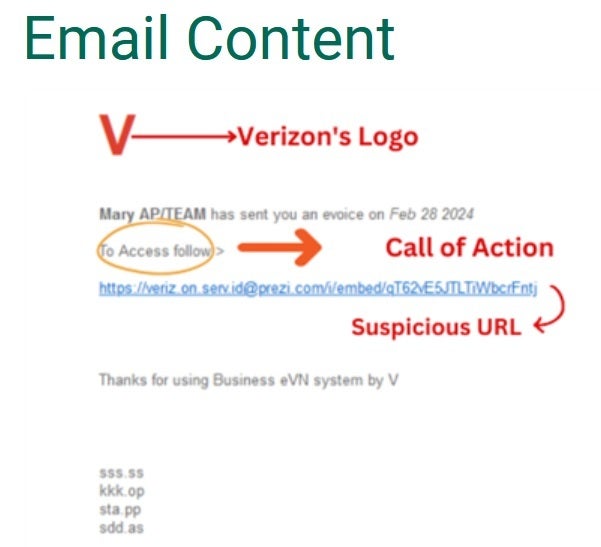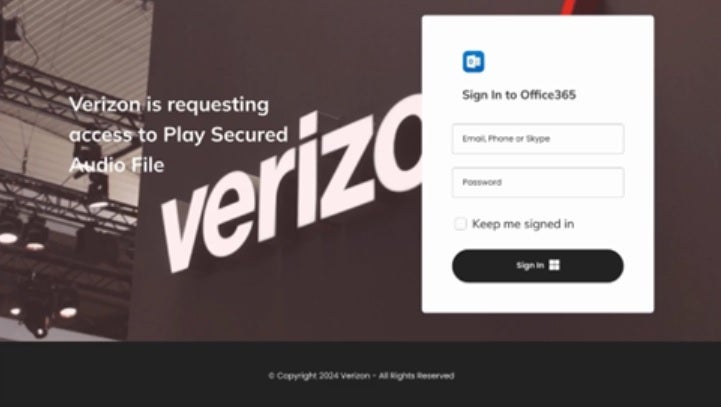Verizon customers need to be on red alert as a phishing campaign aims to steal their money

If you're a Verizon customer, you need to be very alert. According to cybersecurity firm Fortra, scammers have started an active phishing campaign against Verizon customers. A phishing campaign means that emails pretending to be from Verizon are sent hoping to get the recipients who are Verizon customers to reveal key personal data so that they can take over the account, order new SIM cards, and take over the victim's phone and wipe out their financial accounts.
The report says that the malicious actors behind this campaign have discovered a way for these emails to pass through security filters and end up in the victim's inbox instead of the junk mail folder. The email looks like it contains a legitimate link from Verizon to access your invoice and it requests that you log into your Verizon account and click a link in the email. DO NOT DO IT!!! You could end up handing your login information to the scammers. As we've noted, that could lead to the bad actors changing the account address, requesting a SIM card, and stealing your money.

Fortra shows what to look for in a fake email sent by an attacker as part of the campaign to phish Verizon customers
Clicking on the link could also allow the scammers to add malware to your phone or computer. If you get an email that seems shady, hover your mouse over the sender's name to see the real source of the letter. If you're not sure if the email is real, go online to get Verizon's real phone number and give the company a call. Never, never, NEVER click on links found in an unsolicited email or text.
Fortra says that the link also leads to a fake Verizon website that prompts you to sign in using your Office 365 login to hear a Verizon Secured Audio File. This is just an attempt to steal your Office 365 login data.

Clicking the link on the fake email will take you to a fake Verizon page that prompts you for your Office 365 login info
Verizon subscribers need to be on the lookout for emails with the following sender information and more:
- Sender’s Email: member@surveymonkeyuser.com
- Reply-to Address: ms365@verizservus.33mail.com
- Sender’s Name: ms365@veriservus.33mail.com via SurveyMonkey
- Registration Date: August 18, 2016
- Organization: SurveyMonkey Inc.
One way the scammers try to get you to respond to their phishing email is by making it sound as though something bad will happen to you unless you act urgently. For example, you might receive an email that says you will lose your wireless service unless you respond to the email quickly. I've received similar emails in the past and ignored them. One time I received an email from Verizon that contained many spelling and grammatical errors; that is one of the red flags that you should look for. I called Verizon using the phone number I obtained myself and found out that the email did really come from the carrier.
Verizon has a support page dealing with phishing scams and while it has been online for some time, you should follow the carrier's advice which remains valid.
DO NOT:
- Respond to the text message or email in any way
- Click any links
- Open any attachments
- Provide any data to any websites mentioned
Follow us on Google News













Things that are NOT allowed:
To help keep our community safe and free from spam, we apply temporary limits to newly created accounts: